AWS Certified Solutions Architect – Associate (SAA-C03)
Cloud Computing Fundamentals
- Cloud Computing Concepts
- Service and Deployment models
- Shared Responsibility Model
- Virtualization Concepts
- Architecture and Security Concepts
Compute
- AWS EC2
- Amazon Lightsail
- AWS Elastic Beanstalk
Serverless
Storage
- AWS Backup
- Amazon Elastic Block Store (Amazon EBS)
- Amazon Elastic File System (Amazon EFS)
- Amazon FSx
- Amazon S3
- Amazon S3 Glacier
Database
- Amazon RDS
- Amazon Elasticache
Container Services
- Amazon Elastic Container Service (ECS)
- AWS Elastic Kubernetes Service (EKS)
- Amazon Elastic Container Registry (ECR)
Networking and Content Delivery
- Amazon CloudFront
- Elastic Load Balancing (ELB)
- AWS Global Accelerator
- Amazon Route 53
- Amazon VPC
- Other Networking and Content Delivery Overview
- AWS VPN
- AWS Transit Gateway
- AWS Private Link
- AWS Direct Connect
Security, Identity, and Compliance
- AWS Artifact
- AWS Audit Manager
- AWS Certificate Manager (ACM)
- AWS CloudHSM
- Amazon Cognito
- Amazon Detective
- AWS Directory Service
- AWS Firewall Manager
- Amazon GuardDuty
- AWS Identity and Access Management (IAM)
- Amazon Inspector
- AWS Key Management Service (AWS KMS)
- Amazon Macie
- AWS Network Firewall
- AWS Resource Access Manager (AWS RAM)
- AWS Secrets Manager
- AWS Security Hub
- AWS Shield
- AWS WAF
AWS Cost Management
- AWS Budgets
- AWS Cost and Usage Report
- AWS Cost Explorer
- Savings Plans
Analytics
Application Integration
- Amazon EventBridge (Amazon CloudWatch Events)
- Amazon Simple Notification Service (Amazon SNS)
Management and Governance
- AWS CloudFormation
- AWS CloudTrail
- Amazon CloudWatch
- AWS Command Line Interface (AWS CLI)
- AWS Config
- AWS Management Console
- AWS Organizations
- AWS Systems Manager
- AWS Trusted Advisor
- Other Management and Governance Services for review
- AWS Control Tower
- AWS License Manager
AWS Certified Security – Specialty (SCS-C02)
Domain 1: Threat Detection and Incident Response
Design and implement an incident response plan
- Incident Response Strategy
- Roles and responsibilities in IR plan specific to cloud incidents.
- Use case 1: Credentials compromise.
- Use case 2: Compromised EC2 Instances
- Playbooks and Runbooks for IR
- AWS Specific services helpful in Incident Response
- Third-party integration concepts
- Centralize security finding with security hub
Detect security threats and anomalies by using AWS services
- Threat detection services specific to AWS
- Visualizing and Detecting anomalies and correlation techniques
- Evaluate finding from security services
- Performing queries for validating security events
- Create metrics filters and dashboards to detect Anomalous activity
Respond to compromised resources and workloads
- AWS Security IR Guide
- Automating remediation by using AWS services
- Compromised resource management.
- Investigating and analyzing to conduct Root cause and log analysis.
- Capturing relevant forensics data from a compromised resource
- Protecting and preserving forensic artifacts
- Post-incident recovery
Domain 2: Security Logging and Monitoring
- Design and Implement monitoring and alerting to address security events
- Key AWS services for monitoring and alerting
- Monitoring metrics and baselines
- Analyzing environments and workloads to determine monitoring requirements according to business and security requirements
- Setting up tools and scripts to perform regular audits
Troubleshoot security monitoring and alerting
- Configuring monitoring services and collecting event data
- Application monitoring, alerting, and visibility challenges
Design and implement a logging solution
- Key logging services and attributes
- Log destinations, Ingestion points, and lifecycle management
- Logging specific to services and applications
Troubleshoot logging solutions
- AWS services that provide data sources and logging capabilities
- Access permissions that are necessary for logging
- Identifying misconfigurations and remediations specific to logging
- Reasons for missing logs and performing remediation steps
Design a log analysis solution
- Services and tools to analyze captured logs
- Identifying patterns in logs to indicate anomalies and known threats
- Log analysis features for AWS services
- Log format and components
- Normalizing, parsing, and correlating logs
Domain 3: Infrastructure Security
Design and implement security controls for edge services
- Define edge security strategies and security features
- Select proper edge services based on anticipated threats and attacks and define proper protection mechanisms based on that
- Define layered Defense (Defense in Depth) mechanisms
- Applying restrictions based on different criteria
- Enable logging and monitoring across edge services to indicate attacks
Design and implement network security controls
- VPC security mechanisms, including Security Groups, NACLs, and Network firewall
- Traffic Mirroring and VPC Flow Logs
- VPC Security mechanisms and implement network segmentation based on security requirements
- Network traffic management and segmentation
- Inter-VPC connectivity, Traffic isolation, and VPN concepts and; deployment
- Peering and Transit Gateway
- AWS Point to Site and Site to Site VPN, Direct Connect
- Continuous optimization by identifying and removing unnecessary network access
Design and implement security controls for compute workloads
- Provisioning and maintenance of EC2 instances
- Create hardened images and backups
- Applying instance and service roles for defining permissions
- Host-based security mechanisms
- Vulnerability assessment using AWS Inspector
- Passing secrets and credentials security to computing workloads
Troubleshoot network security
Identifying, interpreting, and prioritizing network connectivity and analyzing reachability
Analyze log sources to identify problems
Network traffic sampling using traffic mirroring
Domain 4: Identity and Access Management
Design, implement, and troubleshoot authentication for AWS resources
- Identity and Access Management
- Establish identity through an authentication system based on requirements.
- Managed Identities, Identity federation
- AWS Identity center, IAM, and Cognito
- MFA, Conditional access, STS
- Troubleshoot authentication issues
Design, implement, and troubleshoot authorization for AWS resources
- IAM policies and types
- Policy structure and troubleshooting
- Troubleshoot authorization issues
- ABAC and RBAC strategies
- Principle of least privilege and Separation of duties
- Investigate unintended permissions, authorization, or privileges
Domain 5: Data Protection
Design and implement controls that provide confidentiality and integrity for data in transit
- Design secure connectivity between AWS and on-premises networks
- Design mechanisms to require encryption when connecting to resources.
- Requiring DIT encryption for AWS API calls.
- Design mechanisms to forward traffic over secure connections.
- Designing cross-region networking
Design and implement controls that provide confidentiality and integrity for data at rest
- Encryption and integrity concepts
- Resource policies
- Configure services to activate encryption for data at rest and to protect data integrity by preventing modifications.
- Cloud HSM and KMS
Design and implement controls to manage the data lifecycle at rest
- Lifecycle policies and configurations
- Automated life cycle management
- Establishing schedules and retention for AWS backup across AWS services.
Design and implement controls to protect credentials, secrets, and cryptographic key materials
- Designing management and rotation of secrets for workloads using a secret manager
- Designing KMS key policies to limit key usage to authorized users.
- Establishing mechanisms to import and remove customer-provider key material.
Domain 6: Management and Security Governance
Design a strategy to centrally deploy and manage AWS accounts
- Multi-account strategies using AWS organization and Control tower
- SCPs and Policy multi-account policy enforcement
- Centralized management of security services and aggregation of findings
- Securing root account access
Implement a secure and consistent deployment strategy for cloud resources
- Deployment best practices with Infrastructure as a code
- Tagging and metadata
- Configure and deploy portfolios of approved AWS services.
- Securely sharing resources across AWS accounts
- Visibility and control over AWS infrastructure
Evaluate compliance of AWS resources
- Data classification by using AWS services
- Define config rules for detection of non-compliant AWS resources.
- Collecting and organizing evidence by using Security Hub and AWS audit manager
Identify security gaps through architectural reviews and cost analysis
- AWS cost and usage anomaly identification
- Strategies to reduce attack surfaces
- AWS well-architected framework to identify security gaps







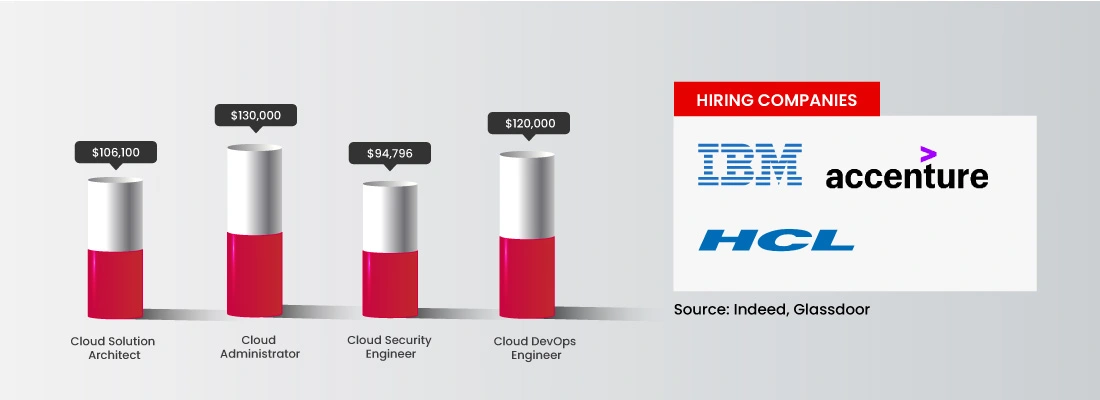







 5th Sep: Weekend
5th Sep: Weekend 

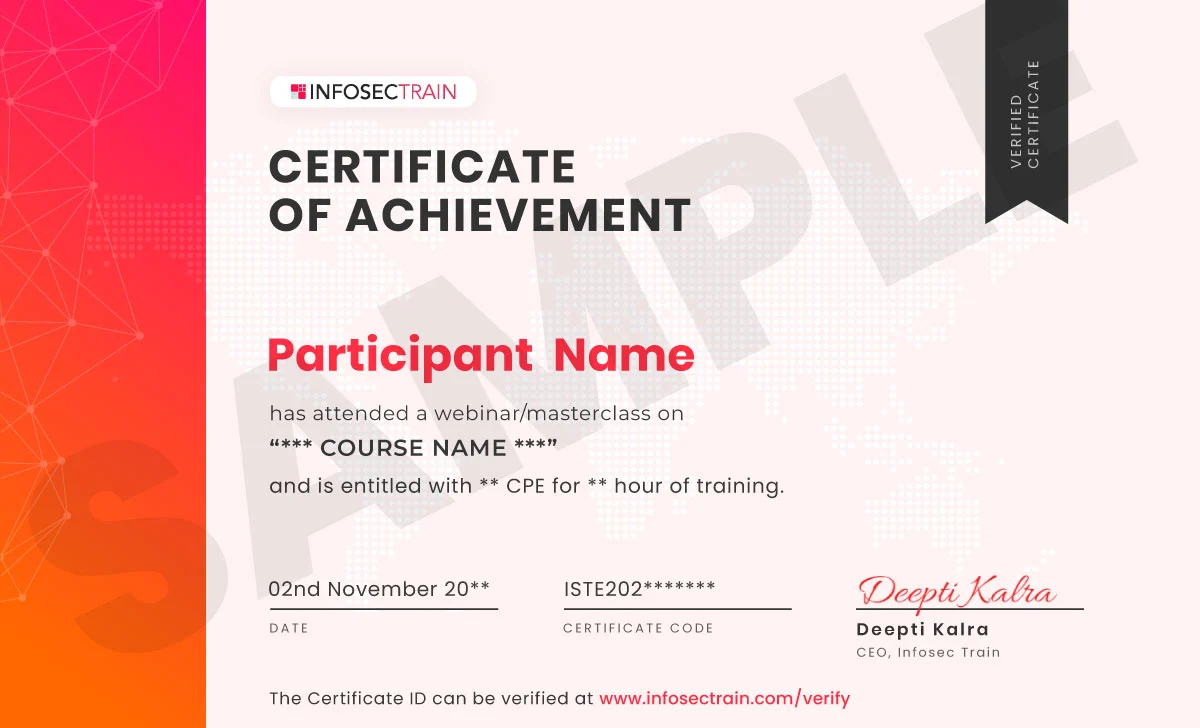


 It was a very good class and I have learned a lot. The recorded sessions were also great. Thank you so much for your support and assistance from the beginning to the end.
It was a very good class and I have learned a lot. The recorded sessions were also great. Thank you so much for your support and assistance from the beginning to the end.





 Certified & Experienced Instructors
Certified & Experienced Instructors Post Training Support
Post Training Support Customized Training
Customized Training Flexible Schedule
Flexible Schedule Access to Recorded Sessions
Access to Recorded Sessions 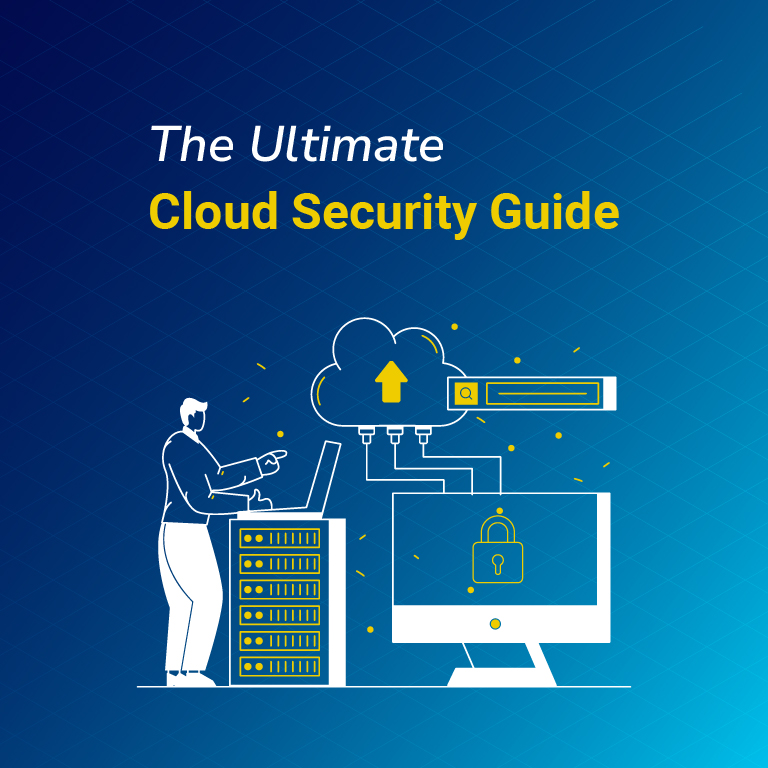
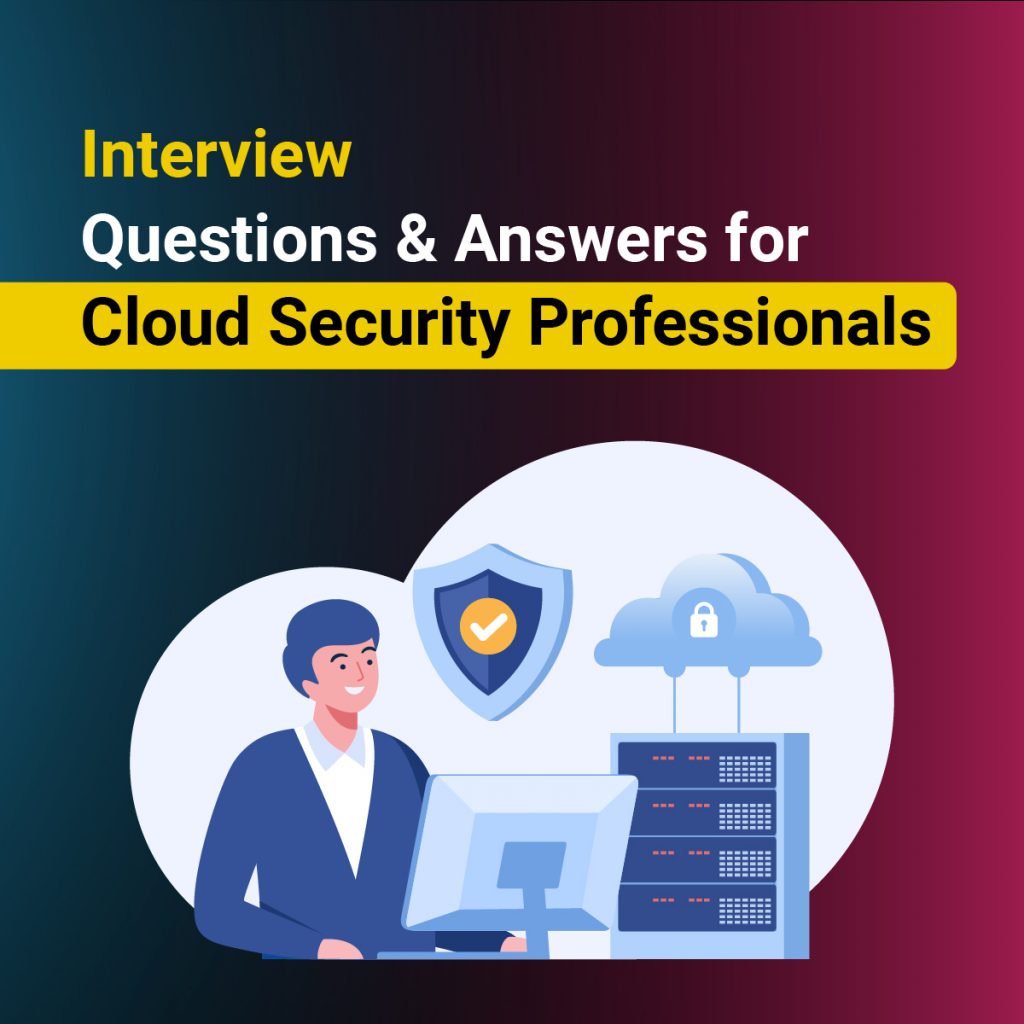
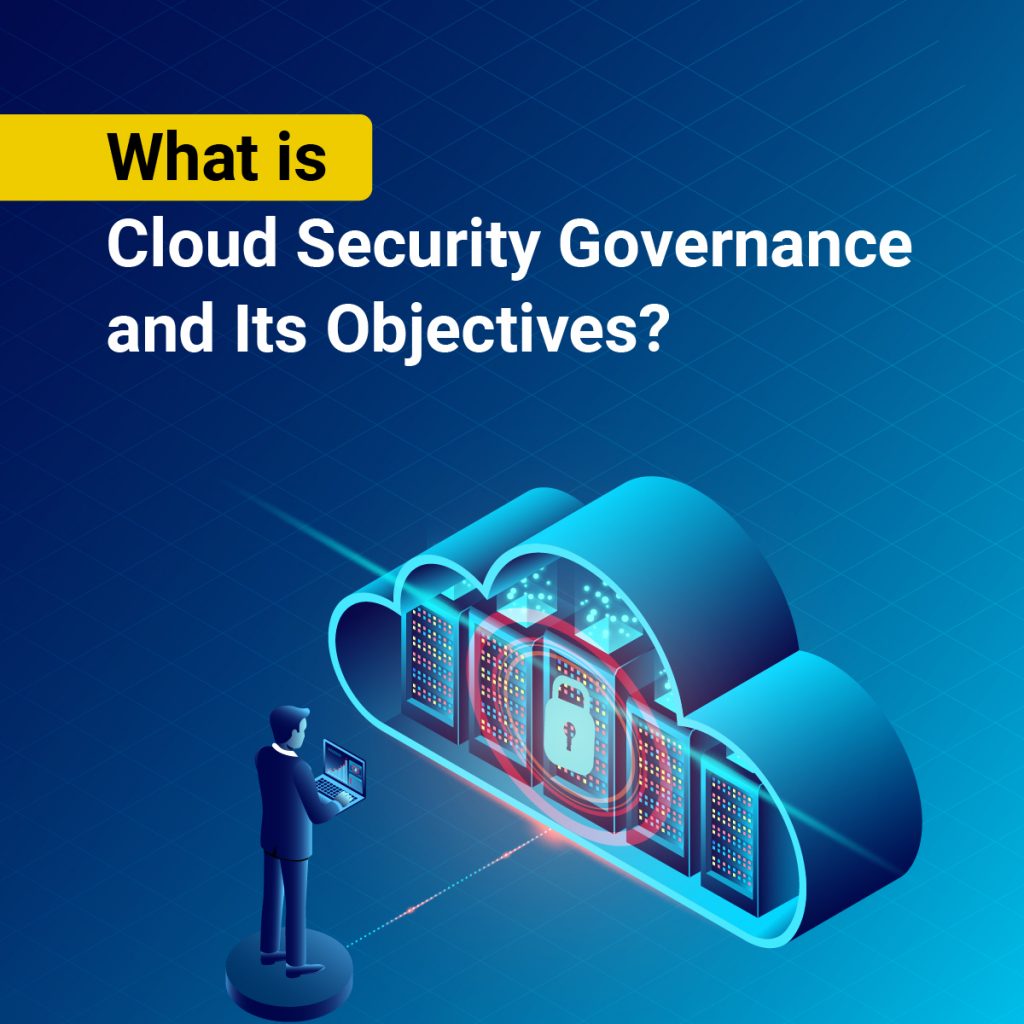

 1800-843-7890 (India)
1800-843-7890 (India)